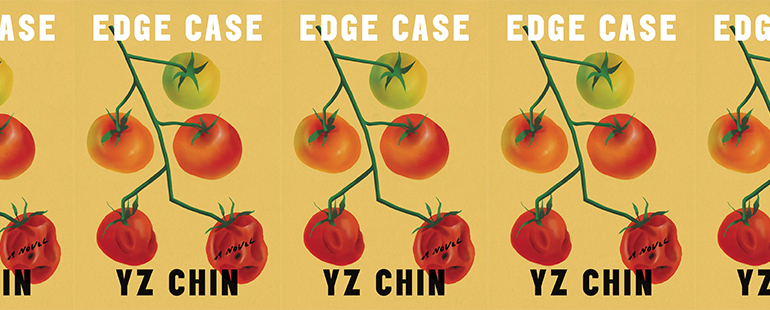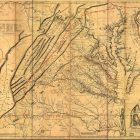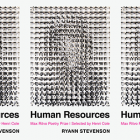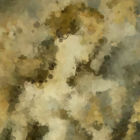Edge Case’s Exploration of Our “True” Nature

In the opening paragraphs of Edge Case, YZ Chin’s debut novel, published last month, Edwina, the narrator, notes that she sometimes has “the foreigner’s way of speaking too formally,” and that her “deferential way of speaking” has become “second nature” in her decade of living in the United States. “Though what an odd saying. What is my first nature?” she asks. Edwina’s status as an immigrant offers the most obvious answer to her question: she acquired—or was born with—her first nature in Malaysia, and she acquired her second nature in the United States, where she first arrived as a college student. The story she tells over the subsequent pages, though, which includes tales of past lives and accounts for the apparently radical transformations of both herself and her husband, Marlin, who is also from Malaysia, suggests that our nature is neither fixed nor fathomable.
Perhaps “second nature” is all we have or can know of ourselves. The term comes from an ancient proverb, Habit is second nature, which appears in the works of St. Augustine, among others. The idea goes back even further. In the Nicomachean Ethics, Aristotle claims that it is “easier to change a habit than to change one’s nature; even habit is hard to change just because it is like nature” and quotes the fifth-century BCE philosopher Evenus: “I say that habit’s but a long practice, friend, / And this becomes men’s nature in the end.” Evenus notably does not distinguish between the nature that arises from habit and anything else that one might call “men’s [sic] nature.” In this view, nurture and nature are indistinguishable as causes of human behavior.
Changes in Marlin’s behavior precipitate the crisis of the novel. In the four years of their relationship, since they met in February 2014 at a lunar New Year party, Edwina has known her husband to be “intelligent, logical, and curious,” an engineer whose reliability complements her spontaneity. “I bring the order and she brings the chaos,” he would tell friends. After the unexpected death of his father in January 2018, Marlin begins not just to believe in spirits, but also to communicate with them. Worse, the spirits, it seems, are guiding him away from Edwina. He is persuaded that she is cheating on him, and one day in July he disappears, taking with him a suitcase and their robot cat named Buster.
Marlin’s disappearance threatens more than his relationship with Edwina. As immigrants, they are supposed to reside at a known address, filing a form with the government any time they move. Additionally, any involvement by law enforcement in the matter could result in Marlin’s losing his job or being deported, and until now, his plan and Edwina’s had been to stay in the United States. They both work in the tech industry in New York City, and had hoped to persuade their employers to sponsor green cards for them before their H-1B visas expire in nine months.
In the months before Marlin’s disappearance, the changes in his behavior disorient Edwina. He spends time alone in the bedroom with the door closed and refers cryptically to reading “charts.” “Like star charts?” Edwina asks, and Marlin replies that what he is doing is “way more sophisticated.” He continues, “I’m still figuring it out. Once I get the hang of it, I’ll teach you. For now it’s better for me to practice and get better by myself.” When he later attempts to share what he is learning with her—dowsing—she is confused, and he perceives her questions as mockery. Channeled through Edwina’s perspective, Marlin’s behavior does seem erratic, especially when he accuses her of cheating on him based on a story her mother tells about one of her past lives. But Edwina may also be too unwilling to accept that her husband might change. “This isn’t like you,” she says when he suggests that they might move back to Malaysia; “So, what? I’m a robot? I can only follow my programming?” he responds.
Edwina has herself been subject to a similar view of her character and behavior as resulting from a kind of programming. Her mother holds folk Buddhist beliefs, including a belief in karmic reincarnation:
She’d been spinning past life stories as long as I could remember, many of them constructed to explain away aspects of my personality that she disliked. For example, she once told me I had been a cruel tormentor of animals in one of my past lives. I started small, she said, nothing more serious than a few well-placed kicks to the heads of passing stray dogs and cats, but as I got older I developed into a full-blown psychopath who impaled birds on tree trunks and skinned rabbits alive, and so on—I’ll spare you. The gist is that the animal cruelty story helps her come to grips with the fact that, in this life, I decided to be a vegetarian. Under the rules of karmic reincarnation, if you do bad things in your past lives, you have to atone or suffer for them in later lives. To her, not eating meat is definitely a form of suffering.
This story is typical of the past life stories Edwina’s mother spins for her: dramatic, elaborate, and violent. A mole on Edwina’s cheek, says her mother, is the result of a past life in which she was burned to death after her house caught fire. Edwina’s homely looks, Edwina infers that her mother believes from another past life story, are the result of her rash and dishonorable behavior in a life in which she was a great beauty. It is from this latter story, in which a village beauty maims herself in proving that she is not a banana tree spirit sapping the life from the fishmonger’s third son, that Marlin gets the idea that Edwina has been unfaithful to him.
The second night after Marlin’s disappearance, Edwina encounters a drunken stranger and feels a “sudden, perverse longing”: “I wanted to be lost like that too, drifting in a place that was not exactly my own life. I wanted to be messed up.” After years of vegetarianism, she knows just what will do the trick: McNuggets from McDonald’s. Eating about a half dozen McNuggets sends her to the bathroom with diarrhea, but over the next few days, as she searches for her missing husband, Edwina indulges in all kinds of meat. She eats prosciutto, bacon, a braised lamb platter, a smoked salmon sandwich, hot dogs, a prime rib sandwich, fried chicken, and osso buco, an Italian dish with a “shot-glass-shaped bone jutting out of the meat.” At the beginning of this meat-eating experiment, she cites Voltaire: “Can one change one’s character? Yes, if one changes one’s body.” Toward the end of the novel, fantasizing about “biting into a double-decker burger, blood-tinged juice dribbling onto my hands” and craving bulgogi, Edwina does indeed seem to have become a different person from the vegetarian who once bonded with her husband, a vegan, over how “veg*ism drove our meat-obsessed friends and families up the wall.” Ironically, she gives up the vegetarianism that united with her husband in an attempt to get closer to him; “Marlin had abandoned the things that made him himself. Maybe I could too, and maybe that would bring me closer to him somehow,” she says.
The quotation from Voltaire comes from the entry on “Character” in his Philosophical Dictionary. In the entry, Voltaire expresses little hope that one actually can change one’s character:
Age enfeebles character; it is a tree that produces only degenerate fruit, but the fruit is always of the same nature; it is knotted and covered with moss, it becomes worm-eaten, but it is always oak or pear tree. If one could change one’s character, one would give oneself one, one would be master of nature. Can one give oneself anything? do we not receive everything? . . . We perfect, we soften, we conceal what nature has put in us, but we do not put in ourselves anything at all.
This view is quite different from that of Evenus, who sees character as based in habit, or behavior. Though Edwina quotes Voltaire, in the end her view of character seems closer to that of Evenus. “Maybe you don’t actually know me that well,” says Marlin at one point; by the end of her story, Edwina isn’t sure that she even knows herself very well anymore. Her view of both Marlin’s and her own character becomes less fixed, more open. Why does Marlin want to go back to Malaysia? Maybe he’s homesick; maybe he doesn’t want to live in the country whose immigration officials detained him upon his return from his father’s funeral anymore. Why does Edwina want to stay in the United States? Maybe she’s more comfortable in her body here—maybe she feels less troubled as a minority here than as a Chinese Malaysian in Malaysia; maybe she feels less troubled where people do not admonish her for being fat. Maybe she knows she will be restless until she finds out if she can get a green card. Maybe, too, she is curious about the “you”—a therapist-in-training whom she met through a dating app—to whom she is telling her story. And certainly, too, in her ten years in the United States, she has already changed, become someone new, possibly more thoroughly than she previously understood.



